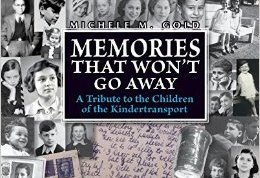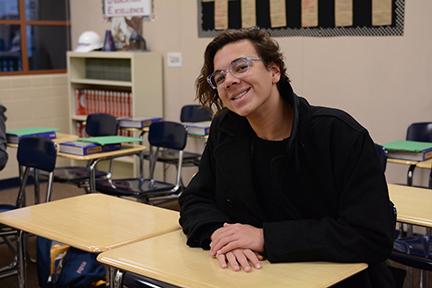Forever Enduring, the Kindertransport

The cover of Gold’s book, with pictures of the children, including her mother.
December 9, 2014
Almost every day, people are reminded of the horrors of the Holocaust, and the horrific acts of Adolf Hitler. However, an event that one does not hear about often is the Kindertransport.
The Kindertransport, a construct of the Allied Forces, especially Great Britain, during World War II, was devised as a way to protect the children of nations at war. Although the Kindertransport was intended to be beneficial, and did have its benefits, it was, in the long run, detrimental to the children that it was transporting.
The Kindertransport was, essentially, a train line which carried 10,000 children out of Czechoslovakia, Poland, Austria, and, most of all, Germany, from 1938 to 1939. In doing so, it tore families apart and separated children from their parents, thus creating an air of confusion and disarray. Not only did it bewilder the children, but it struck fear of warfare and the possibility of never seeing their parents again into their hearts.
Michele M. Gold, a second generation of the Kindertransport, recently wrote a book, Memories That Won’t Go Away: A Tribute to the Children of the Kindertransport, on children of the Kindertransport.
Her book includes stories, photos, quotes, and monologues. Every page details a child of the Kindertransport and their story, including their train number, place of origin, name, and destination.
Her book takes the children’s savior, Sir Nicholas Winton, into special consideration–including his full story. It talks about his birth, his efforts to rescue children, and everything between. He saved upwards of 670 children and, as a result, he was knighted by the Queen. Gold had an interview with Winton immediately before his 105th birthday, as he is the oldest living rescuer, and she only can describe it as “life changing.”
Students react to the Kindertransport with mixed emotions. Shannon Cahill (12) states that “ [she] did not know much about it, but it is really interesting. I think what they did was inspirational and I doubt that they could have done anything differently.” The Kindertransport is something that continues to influence people to this day, it will forever influence the survivors.





































